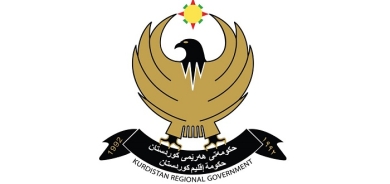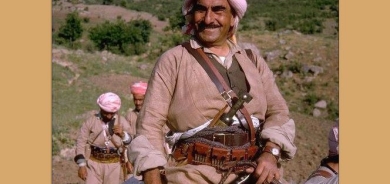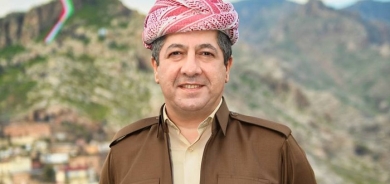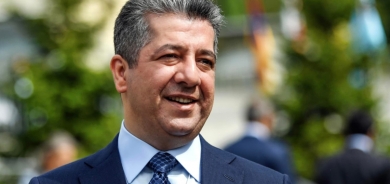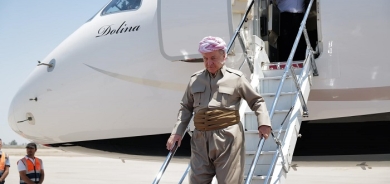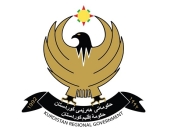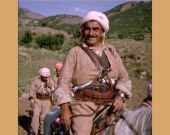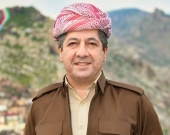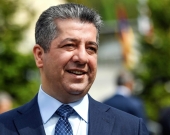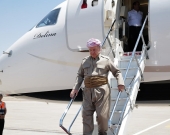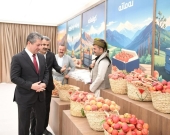Is Iraq joining the Trump-MBS alliance?

Iraq’s new Prime Minister Mustafa al Kadhimi’s, decision to make Saudi Arabia rather than Iran his first destination abroad contradicted what all his predecessors had done before. It was designed to send a clear message indicating that he has not only sympathised with the Trump-MBS outrage that Iraq’s previous PM – Adel Abdul Mehdi – has tilted the balance of power in favour of their arch foe Iran, but he is also determined to take practical steps to rein in what they perceive as Iranian perilous influence. In response, Iran dispatched its Foreign Minister Javad Zarif on 19 July, to Baghdad in order to underline that while Tehran would shield its interests in Iraq, it would nevertheless back Khadimi’s quest to mediate between Tehran and Riyadh.
And while the Kingdom’s de facto ruler, Mohammed bin Salman (MBS), cited his father’s sudden illness as an excuse for cancelling Kadhimi’s visit, yet in reality Riyadh has made no secret that it regarded Kadhimi’s steps to curb Iranian influence woefully short of achieving its overarching goal, namely dismantling the Popular Mobilisation Forces PMF, a government controlled grouping of predominantly Shia paramilitary units – formed after Grand Ayatollah Ali al Sistani’s fatwa in 2014 calling for the defence of Iraqi cities against ISIS. The PMF have spearheaded Iraq’s fight-back against ISIS. And given the unprecedented dire economic challenges facing Riyadh – largely due to MBS’s futile unwinnable war on Yemen and tumbling oil prices precipitated by COVID-19 – MBS was keen to avoid financially propping up Kadhimi’s government.
With Kadhimi’s visit to Tehran on 20 July under the spotlight, he emphasized that Iraq is hell-bent on balancing US-Iranian competing interests, urging both sides to refrain from turning Iraq into a battlefield. His appeal comes amid an escalating confrontation that was triggered on 3 January, by the US assassination of Gen. Qassem Soleimani head of Iran’s elite Revolutionary Guard Corps near Baghdad airport. Iran’s Supreme Leader Ayatollah Ali Khamenei fired back reminding Kadhimi that the US had not merely assassinated Suleimani, a guest, on Iraqi soil – the ultimate humiliation according to Arabic tradition – but also defiantly bragged about it. More significantly, however, he insisted that Iran expects Kadhimi to implement Iraq’s Parliament resolution issued on 5 January, demanding the full withdrawal of all foreign troops.
As ever, the latest waves of protest that have been rocking the Shia heartland since 1 October 2019 were sparked by almost non-existent public services, widespread unemployment and endemic corruption, but in the face of a vicious crackdown by Abdul Mahdi’s government, it spiralled out of control, prompting al Sistani to explicitly instruct the parliament to replace Abdul Mahdi with an uncontroversial new PM, whose primary task would be preparing the ground for fair elections.
As part of the increasingly aggressive Trump-inspired and MBS-sponsored strategy, Iraq, instead of Syria, became the central battlefield for rolling back Iranian influence. Brett McGurk, who was US Envoy to Iraq, successfully managed – after the last 2018 parliamentary elections – to forge a coalition of Shia political blocs comprised of Muqtada al Sadr, Ammar al Hakim, and Iraq’s ex-PM Haider al Abadi. But, Soleimani’s intervention derailed his attempts to install a US–friendly PM.
Buoyed by Soleimani’s assassination and emboldened by US-Saudi support, Ammar al Hakim – who is increasingly becoming Riyadh’s main Shia pointman – scrambled to revive his alliance with al Sadr and Abadi while also conspiring with Barham Salih – Iraq’s Kurdish President – to promote al Kadhimi’s candidacy and simultaneously thwart attempts by Iran-friendly political leaders, namely Hadi al Amiri and Nouri al Maliki, to appoint an Iran-backed PM.
Iraq, instead of Syria, became the central battlefield for rolling back Iranian influence
Faced with an unparalleled existential threat, the leaders of the Mafia-like family-controlled political blocs concluded that the only conceivable way to shore up the unraveling political system was mollifying Trump by appointing Kadhimi as Prime Minister on 9 May and striking a deal enabling Washington to keep a fraction of its troops in Iraq.
Yet, ironically, the strategic dialogue which took place on 11 June, amounted to a declaration of Iraq’s unconditional surrender. The US not only refused to commit itself to a withdrawal timetable, rather it even demanded Iraqi protection for its troops. As expected, this provoked a dramatic surge in rocket attacks targeting US interests, including on its embassy in the Green Zone (GZ) – home of Iraq’s government – hence calling into question Kadhimi’s legitimacy and credibility.
Amid growing US pressure on Kadhimi to retaliate, the new PM ordered Iraq’s counter terrorism forces (ICTF) on 26 June, to raid the headquarter of Kataib Hezbollah – part of the PMF – and arrest 14 members. In reprisal, the PMF rapidly stormed the GZ, forcing Kadhimi to back down, releasing those detained, and thereby exposing the limitations of his powers despite US support. Alarmed by calls for Kadhimi to resign after his raid backfired, al Hakim sought to fend off such moves by forming a new parliamentary bloc (Iraqis) on 29 June. The bloc's task was to secure Kadhimi’s position in parliament.
Against this backdrop, on 4 July, the US thought it necessary to test its C-Ram system above the GZ in order to demonstrate that it was not relying on Kadhimi for protection, despite being aware that such action would further erode Kadhimi’s authority. To fix that, Gen. Kenneth Mackenzie, the commander of US CentCom stressed – after meeting Kadhimi on 7 July – that the US endorsed the PM’s attempts to take on the PMF and he was confident that Kadhimi would ask US troops to stay. But he opened the door for further negotiations by saying a smaller US force could do the job, thus signalling that Kadhimi has done enough to secure a meeting with Trump.
Kadhimi’s call for early elections on 6 June 2021 was an attempt to placate violent protests – which were inexcusably met with deadly force on 26 July – and also to quash accusations that he was dragging his feet over early elections while also shifting the blame to the leaders of political blocs, who are ultimately responsible for passing the new electoral law in parliament.
Trump’s overriding priority has implacably been winning the 2020 US elections. In his book, this means US troops must not pull out of Iraq, as he has consistently scolded Obama for doing so in 2011, regarding it the chief reason behind the resurgence of ISIS. But with the US economy reeling, unemployment soaring, anti-racism protests raging, and a spectacular failure in combating COVID-19, all of which were increasingly boosting the prospects of Joe Biden, it was hardly surprising that Trump exploited Kadhimi’s trip to Washington on 20 August, pushing him to further tighten the screw on Iran’s already faltering economy, expecting it would compel Iran to succumb to his relentless campaign of maximum pressure and sanctions by renegotiating a new nuclear deal.
As such, Trump pressed Kadhimi to expeditiously end Iraq’s dependency on Iranian electricity by replacing it with Saudi sources and signing agreements with five US energy firms – worth $ 8 billion - aiming to turn Iraq’s energy sector into an integral part of US national security, and hence justifying an enduring military presence. As predicted, Trump demanded tougher concrete steps to strip the PMF of its weapons. However, he scuppered all hopes of reducing US troops and declined to provide a timetable for withdrawal, insisting that troop numbers were bought down to the lowest level.
To make matters worse, Trump highlighted that Kadhimi knew that they were there to help in case of any Iranian hostile action, raising fears of a major shift in emphasis from ISIS to Iran. Indeed, Kadhimi’s visit was accompanied by a dramatic spike in tensions between Iran and the US provoked by the latter's contentious attempts to reinstate all UN Security Council sanctions that were lifted under the 2015 nuclear accord – after failing to extend a UN arms embargo on Iran, which was due to expire in October.
Kadhimi, in turn, underscored that no previous PM has ever dared to tackle Iranian influence or challenge armed groups, calling for much more tangible US support in the economic, commercial, energy and security sectors as well as help in combating COVID-19. He also urged Trump to intervene, complaining that Riyadh has not just resisted helping Iraq but also continued stoking sectarian and ethnic divisions.
Kadhimi may have consolidated his position in the short term, after gaining Trump’s support. Kadhimi's decision to keep US troops and his assertion - which featured in Trump’s re-election campaign - that it was Trump not Obama, who decisively defeated ISIS, have inextricably tied him to Trump and made him more reliant on US forces. Unsurprisingly Kadhimi’s decisions have unleashed a severe backlash, alienating Iran-friendly political and armed groups – which are up in arms against him - and also embarrassing his allies notably Muqtada al Sadr. Clearly, Kadhimi’s visit to Washington has neither eased tensions nor dampened growing calls for a sweeping overhaul of the political system and an outright ousting of the ruling families, who have brought Iraq to its knees.
Open Democracy

